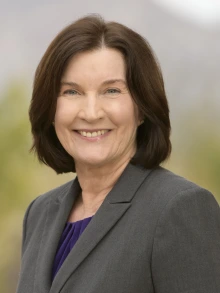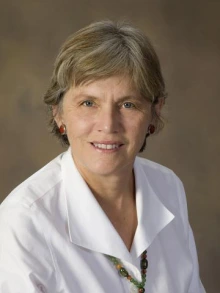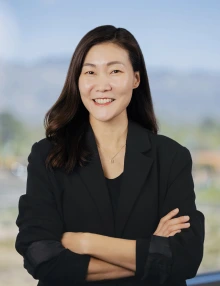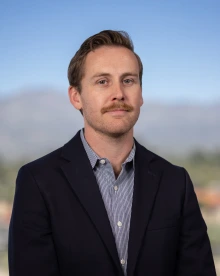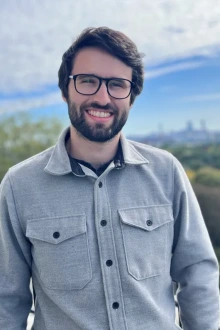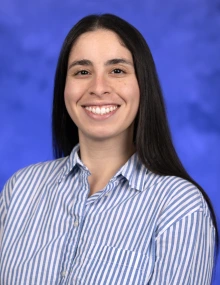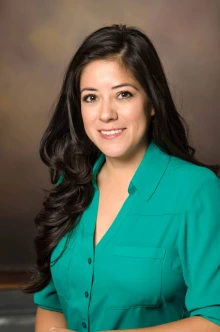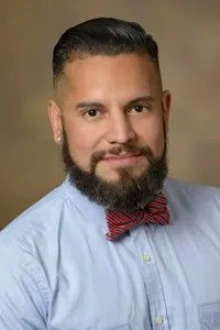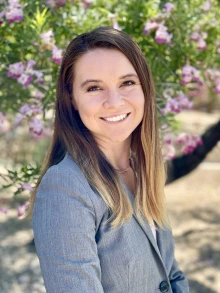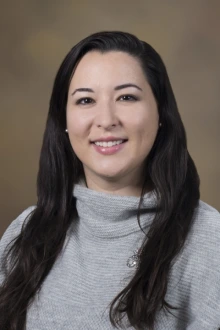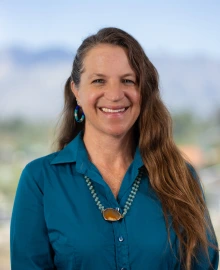Are you in search of a fellowship in cancer research?
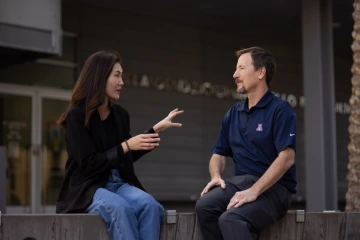
For 45 years, the University of Arizona Cancer Center (UACC) has received invaluable training grants funded through the National Cancer Institute with a history of training successful cancer prevention and control researchers. The goal of the current T32 Cancer Prevention and Control (CPC) Postdoctoral Training Program’s is to train an outstanding workforce of independent, interdisciplinary CPC scientists, who represent multiple disciplines (e.g., Public Health, Nursing, Epidemiology, Physiology), to improve health outcomes among populations in the U.S.
We seek postdoctoral fellows with relevant doctoral degrees who are interested in advancing their research program to address cancer prevention and control and improve the quality of life for cancer survivors.
The T32 offers career-making mentorship and transformational training
This NCI-funded T32 Cancer Prevention and Control Program offers a multi-disciplinary mentored environment to train interdisciplinary and highly competitive scholars to prepare them for independently funded research careers aimed to move the needle on cancer prevention and control.
“The T32 provides fellows with critical protected time to establish a focused research idea and related programming,” said Cancer Center member Cynthia Thomson, PhD, RDN, T32 former corresponding principal investigator of the T32. “It provides them with specific training opportunities to hone their skills and knowledge. It is also a critical time for developing professional relationships and collaborations to carry their research agenda forward in a meaningful way.”
Train to become an independent investigator
This Cancer Prevention and Control Postdoctoral Fellowship Program provides preparation for an individual who wishes to pursue the route to becoming an independent scientist.
The training program includes development of clear scientific and academic goals, constructive scientific guidance from top-level mentors, and support for presentation and publication of results. Each fellow will have a mentoring team and mentoring plan in place to ensure future success in academic research. The trainee will work with established investigators and is expected to engage in a research project; develop research proposals; produce two to three publications per year; and work with a multidisciplinary team.
Applications are now being accepted on a rolling basis.
Please see Eligibility and Application information below.
Individuals with a doctoral degree in public health, medicine, epidemiology, basic science, community psychology, sociology, or related health science degrees are encouraged to apply. Underrepresented minorities are encouraged to apply. This fellowship is restricted to U.S. citizens and permanent residents.
Required application materials include:
- Curriculum Vitae
- Personal statement and research concept (2 page max)
- Unofficial transcripts
- Three references (names and contact information)
To apply and for more information, please contact us here.
The University of Arizona Cancer Center’s Cancer Prevention and Control Health Disparities Training Program offers a multi-disciplinary mentored environment. Potential mentors and mentoring committee members for T32 CPC fellows are listed below. Please note that primary mentors are not required to be on these lists, but at least one of the mentors listed below should be included in a fellow's mentoring committee.
Mentors and their areas of research are:
Allen, Alicia M., PhD Family and Community Medicine
Area of Research: Women/maternal health and smoking cessation
Altbach, Maria I., PhD Medical Imaging
Area of Research: Imaging techniques for cancer diagnosis
Badger, Terry A., PhD Nursing
Area of Research: Symptom management and psychological distress interventions in Hispanic cancer survivors and caregivers
Barton, Jennifer K., PhD Biomedical Engineering
Area of Research: Endoscopic techniques for early cancer detection
Bea, Jennifer W., PhD Public Health
Area of Research: Body composition and cancer disparities among women
Burgess, Jefferey L., MD Public Health
Area of Research: Environmental-related exposures and cancer disparities in Native Americans, firefighters, and miners.
Carvajal, Scott C., PhD Public Health
Area of Research: Health behavior theory, social ecological models within minority populations, Latino/cultural behavioral science and health promotion science
Caulin, Carlos, PhD Otolaryngology
Area of Research: Molecular mechanisms that promote head and neck cancer development
Chow, Hsiao-Hui (Sherry), PhD Medicine
Area of Research: Clinical development of cancer chemopreventive agents; Disparities in Hispanic Women and biomarkers associated with breast cancer risk
Connick, Elizabeth, MD Medicine
Area of Research: Smoking cessation and sleep quality in adults living with HIV
Coronado, Gloria D., PhD Public Health
Area of Research: Improving colorectal cancer screening and follow-up and developing culturally relevant health education materials.
Curiel-Lewandrowski, Clara N., MD Medicine
Area of Research: Photobiology, early skin cancer detection, and primary prevention of skin cancers.
Ellis, Nathan A., PhD Cellular & Molecular Medicine
Area of Research: Molecular pathological etiology of early-onset colorectal cancer and its impact on African Americans
Farland, Leslie, PhD Public Health
Area of Research: Chronic disease risk, etiology and risk factors for infertility and gynecologic health conditions
Gachupin, Francine C., PhD Family & Community Medicine
Area of Research: Behavioral risks, chronic disease, and Obesity in Native American/American Indian youth
Garcia, David O., PhD Public Health
Area of Research: Obesity-related health disparities among Hispanic men; preventing and treating non-alcoholic fatty liver disease
Gordon, Judith S., PhD Nursing
Area of Research: Technology-based and image driven approaches to tobacco cessation
Hamann, Heidi, PhD Psychology
Area of Research: Psychological and behavioral aspects of cancer screening, diagnosis, and survivorship; stigma and cancer care delivery in vulnerable populations
Harris, Robin B., PhD Public Health
Area of Research: Skin cancer prevention, behavioral and lifestyle risk factors for cancer, environmental exposures, and cancer prevention among Native American and Hispanic populations
Liang, Rongguang, PhD Optical Sciences
Area of Research; Imaging and prob techniques for cancer detection
Limesand, Kirsten H., PhD Nutritional Sciences
Area of Research: Salivary gland function restoration in patients treated for head and neck cancer
Maier, Raina M., PhD Environmental Sciences
Area of Research: Mining waste contamination and health
Thomson, Cynthia A., PhD Public Health
Area of Research: Diet and behavioral interventions for the modification of cancer risk in Hispanic communities to reduce health disparities




